Bhisma's Karma!
Bhishma’s story of faith, devotion and wisdom continues to inspire people even today.
Bhishma Ashtami on Magha shukla ashtami tithi commemorates the death anniversary of Bhishma who chose to die on the battlefield of Kurukshetra, during the propitious period known as the Uttarayana.
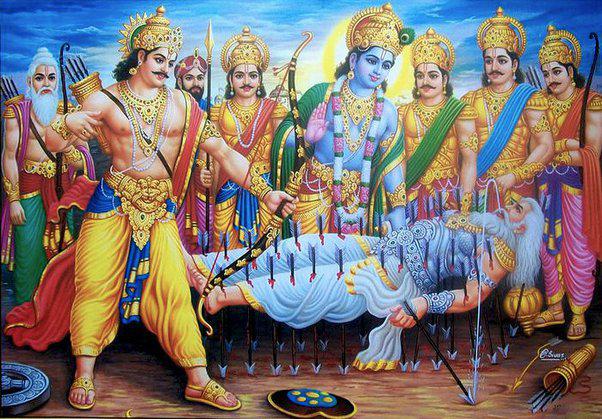
Bhishma was one of the most powerful warriors of his time; his prowess and invincibility came from being the son of the sacred Ganga and being an able student of Lord Parashurama.
Born to King Shantanu and Goddess Ganga, the young Devavrata was a highly celebrated prince of the era who was bound to become the king one day but life had other plans for him.
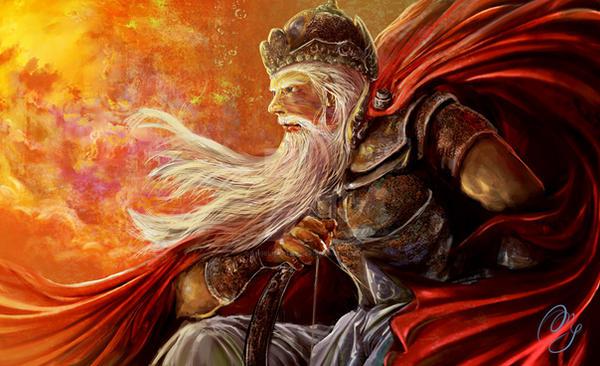
Bhishma is remembered as an example of the terrible sacrifice and noble devotion representing the yogic virtue of Brahmacharya.
With loyalty as his shield and honour as his armour Bhishma exemplified the essence of an ideal disciplined Kshatriya warrior.
The Bhishma Parva describes the first 10 days of the 18-day Kurukshetra War and its consequences.
It recites the story of Bhishma, the commander-in-chief of the Kaurava army, who was fatally injured and lost his ability to lead the war.
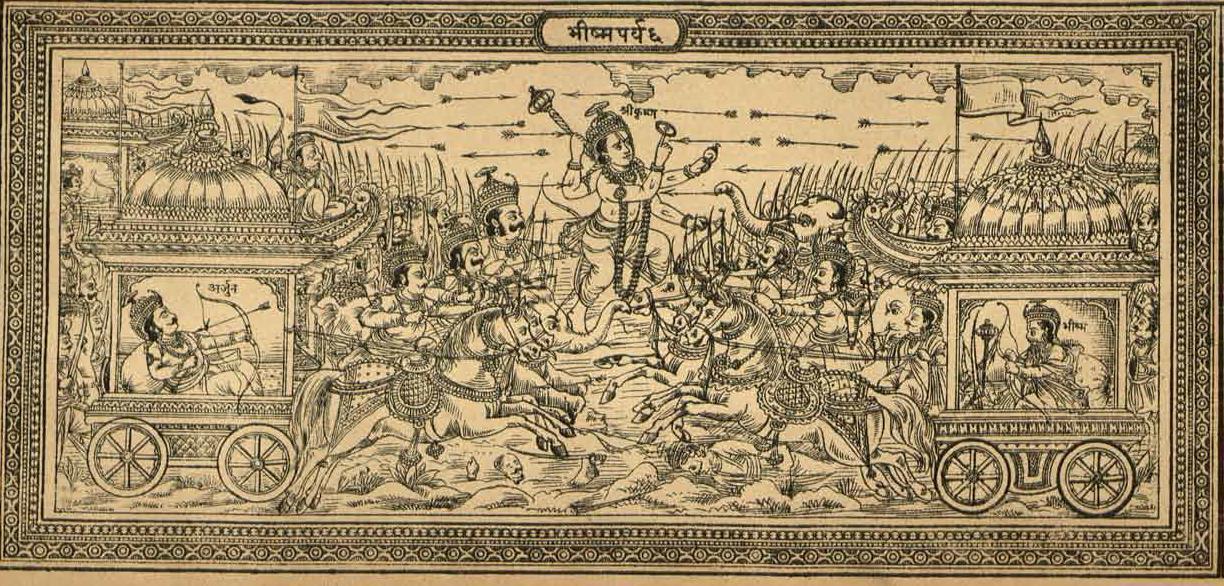
On the tenth day of the war, Arjuna with the help of Shikhandi pierced Bhishma with numerous arrows. The arrows were so powerful that Bhishma fell to the ground but the arrows supported his body like a bed and Bhishma laid straight on a bed of arrows. Lying on the bed of arrows, Bhishma felt thirsty. So he told Arjuna who shot the Parjanya missile into the ground and water gushed out. After drinking it, Bhishma was satisfied.
The Bhismakund Pond exists today at the same place.
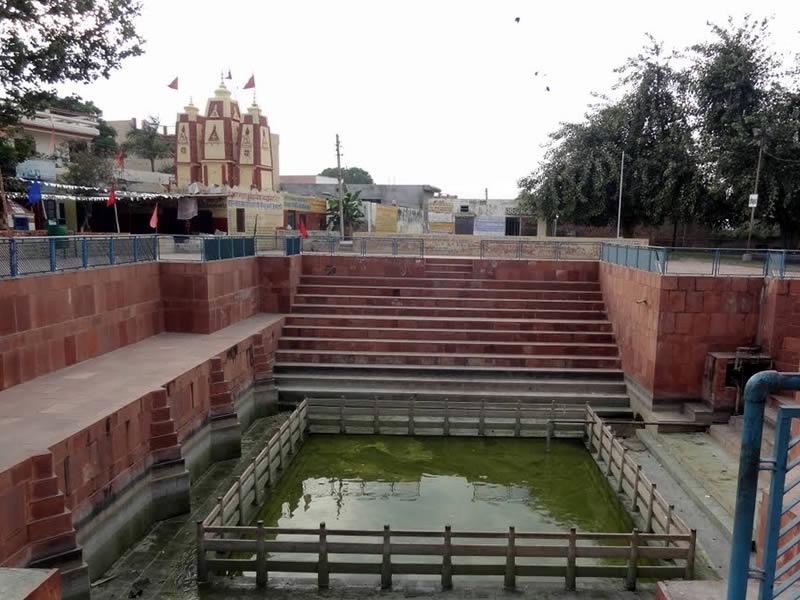
Have you ever thought why he had to suffer so much at the time of his death? In spite of being fatally wounded, he continued to struggle painfully on the bed of arrows for a long time.
Bhishma had the power of ichhamrityu –– the power to die when he wished to die.
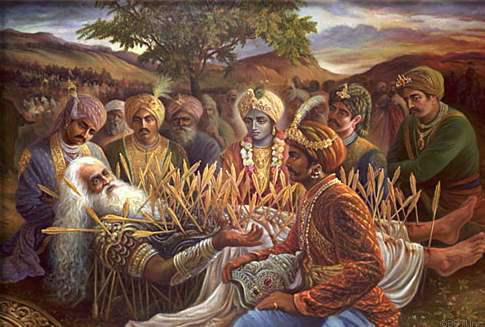
After spending fifty-eight nights on the arrow bed, Bhishma finally left his body on auspicious Uttarayana, which marks the northward passage of the sun.
On the eighteenth day, the war was over and Bhishma asked Lord Krishna the reason for his long suffering and agony on the bed of arrows.
Bhishma asked Krishna "Hey Madhav!, it is said that earth is the land of Karma, where we receive results of our past good and bad deeds.
I don't remember any sin committed by me in my previous births, then why have I fallen like this on a bed of arrows?".
Shri Krishna told Bhishma that it was a result of his prarabdha karma and runabanda.
In a previous birth, a Karketa bird accidentally collided with Bhishma's chariot and he carelessly shot down that innocent bird with an arrow. The bird fell into thorny bushes and remained trapped in it for 18 days before dying an agonizing death.
The bird had cursed Bhisma that one day he would also suffer this pain.
Bhishma the eighth Vasu was cursed to be born amongst humans for trying to steal the sacred cow of sage Vashistha.
Bhishma promised to “protect the throne of the Kurus.”, thus binding him to politics and all it involves, for many decades to come.
Trying to help his brother, Vichitravirya acquire a bride became the cause of a karmic entanglement with Amba, the princess of Kashi. Her dreams of marrying Shalya were shattered and Amba vowed to avenge herself by becoming the cause of Bhishma's death.
Reborn as Shikhandi, she stood between the grandsire and Arjun as a human shield so that Arjun's arrows could pierce Bhisma.
By first placing a sickly Pandu and then the blind Dhritrashtra on the throne, Bhishma unleashed a chain of events that led to the Mahabharata war.
As a consequence of his vow to protect the throne of Hastinapur, Bhishma tied himself to the Dhritharashtra who sat on the throne and could not extricate himself from the quagmire of family politics and the ensuing Adharma.
But his greatest blunder was his feeble protest when Draupadi got disrobed in front of the full court.
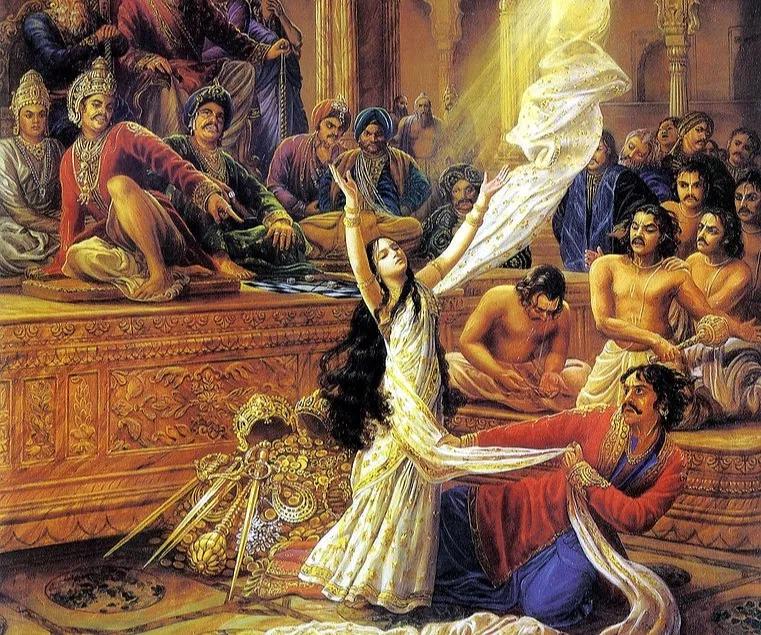
Every time Bhishma silently sided with injustice, he incurred a karmic balance, that grew to be a terrible burden on his aged shoulders.
The terrible slaughter of kings, princes, men and animals must have been heart-wrenching for him to see as he had worked so hard, compromised on many occasions, just to hold the dynasty together.
In the end, Karma binds us all. Karma refers to the law of cause and effect, where one's actions and choices determine the outcome of their life.
Bhisma paid for his sins with the agonizing wait for death on the bed of arrows.
The war did end in the favour of Pandavas on the eighteenth day but the story doesn’t end there.
As Bhishma lay on the arrow bed, Lord Krishna asked him if he was worried about anything. Bhishma replied that no one who had seen Krishna would be worried. The Lord then asked Bhishma to clear Yudhishtra’s doubts. Bhishma humbly submitted that there was nothing he knew that the Lord did not know. Could the Lord then Himself not instruct Yudhishtra? The Lord replied that Bhishma should advise Yudhishtra based on his own experience.
On Sri Krishna's advice, Yudhishthira posed six questions to Bhishma regarding all aspects of life, to which Bhishma responded that Yudhishthira should surrender his life to whoever granted him life.
Bhishma Pitamah recited the Vishnu Sahasranamam stotram in the presence of Sri Krishna to give updesha to the king of dharma “Yudhishitra”.
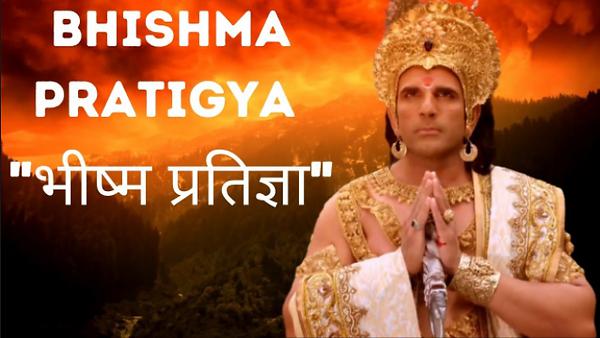
Bhishma the noblest warrior, loyal to the Kuru dynasty with selfless service, known for keeping his promise (pratijna) under all difficult circumstances and knowledge of wise governing finally attained salvation after his death and was granted the Maatru Lok which is considered above Swarga/heaven.
#Mahabharata #Shrikrishna #bhisma #karma #vishnusahasranam
Comments (11)











